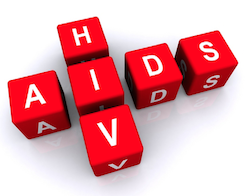-
Advocacy Theme
-
Tags
- Abortion
- Adoption
- Caregiving
- CEDAW
- Disability
- Domestic Violence
- Domestic Workers
- Harassment
- Healthcare
- Housing
- International/Regional Work
- Maintenance
- Media
- Migrant Spouses
- Migrant Workers
- Muslim Law
- National budget
- Parental Leave
- Parenthood
- Polygamy
- Population
- Race and religion
- Sexual Violence
- Sexuality Education
- Single Parents
- Social Support
- Sterilisation
- Women's Charter
World Aids Day: AWARE highlights vulnerability of married women, especially foreign wives, living with HIV/AIDS
November 29th, 2016 | News, Press Release, Sexual and Reproductive Health
This post was originally published as a press release on 29 November 2016.
 29 November 2016 – In view of World AIDS Day on 1 December, AWARE has released a study highlighting the experiences and vulnerabilities of non-sex worker women living with HIV or HIV-positive partners.
29 November 2016 – In view of World AIDS Day on 1 December, AWARE has released a study highlighting the experiences and vulnerabilities of non-sex worker women living with HIV or HIV-positive partners.
Commissioned by AWARE and carried out by researchers from the Saw Swee Hock School of Public Health, the study involved in-depth interviews with 55 women. Other than studies on sex workers, there had previously been minimal local research on HIV/AIDS prevention among married or young women in Singapore.
Notably, half the married HIV-positive women in the study reported acquiring the infection from their husbands – some faced abuse when they asked their husbands to use condoms. Foreign wives faced particular difficulty in accessing treatment and support.
Women face barriers and abuse when negotiating condom use
As of 2015, 57.6% of the women diagnosed with HIV/AIDS in Singapore were married. Almost half of the HIV-positive married women in AWARE’s study believed they had acquired the infection from their husbands. A few knew of their husbands’ infidelity (which could affect their likelihood of infection), but many remained married because due to economic dependence, a sense that men’s extramarital affairs were a societal “norm”, or feelings of powerlessness.
“Some women faced verbal or physical abuse when trying to avoid unprotected sex with their husbands through condom use,” said Jolene Tan, Head of Advocacy and Research at AWARE. “The idea that women cannot say no to sex in marriage has serious public health consequences – another reason to repeal marital immunity for rape rapidly, as Singapore told the United Nations it was considering, earlier this year. And framing faithfulness to one’s spouse as the be-all and end-all of preventing STI transmission does not help women in these situations.”
The study’s findings shaped the messages of a powerful video, “This is your life. Get tested.” (first released in April 2014), which illustrates how societal support for women’s sexual empowerment within marriage can be crucial to their health and well-being.
Vulnerabilities of foreign wives living with HIV or with HIV-positive partners
Twenty of the married women interviewed were foreign wives, who faced particular difficulties in accessing healthcare and support.
“Foreign wives on social visit passes are not allowed to work and are wholly dependent on their husbands for financial support, making it hard to afford expensive medication,” said Rev Dr Yap Kim Hao, Pastoral Advisor to the Free Community Church, and a consistent proponent of more support for HIV/AIDS patients. Respondents with HIV-positive husbands had concerns about how they would cope if their husbands fell ill and stopped working.
HIV-positive foreign wives also experience more uncertainty in their citizenship and residency status.
“If you are HIV-positive, you will generally be granted at most a one-year LTVP, but not permanent residency, let alone citizenship. This sets a lot of complications in the event that the husband passes on and they are anxious about the very real possibility of being sent home and separated from their children,” said Norani Othman, a social worker with extensive ground experience working with the HIV/AIDS community.
“If Singapore respects the right to family life, there can be no room for discrimination against foreign wives – who may be mothers of citizen children – because of their health,” said Jolene Tan of AWARE. “We urge the ICA to publicly confirm that HIV status will not negatively affect applications for the LTVP+ or permanent residence.”
Dependence on husbands for financial support and residence furthermore makes it difficult for those who are in abusive marriages to leave.
More public education on HIV/AIDS needed
AWARE makes the following recommendations for the government to provide better care for women at risk of HIV/AIDS and to improve and increase public education on HIV/AIDS:
- Implement education programmes to combat stigma and promote acceptance of HIV infected women in the family, workplace and the community, including promoting testing.
- Subsidise treatments to ensure affordability and increase compliance with medications among these women. Moreover, subsidised care and medication should be offered to foreign spouses of Singaporeans on the basis of financial need, not citizenship status.
- Promote condom use and awareness.
- Abolish marital immunity for rape in the Penal Code (Section 375(4) and Section 376A(5)). The current law facilitates men coercing their wives into (unprotected) sex, by promoting the idea that women cannot say no to sex within marriage.
- HIV status should not be a factor in considering applications by foreign spouses of citizens for LTVP+, permanent residence or citizenship.
“Stigma strongly affects these women’s well-being,” said Jolene Tan, Head of Advocacy & Research at AWARE. “More public education is needed to promote inclusion of women living with HIV in the family, healthcare settings, the workplace and generally in the community.”
About AWARE
AWARE is Singapore’s leading women’s rights and gender equality advocacy group. We embrace diversity, and we promote understanding and acceptance of diversity, respect the individual and the choices she makes in life, and support her when needed, and recognise the human rights of all, regardless of gender, so that everyone can realise their aspirations.



